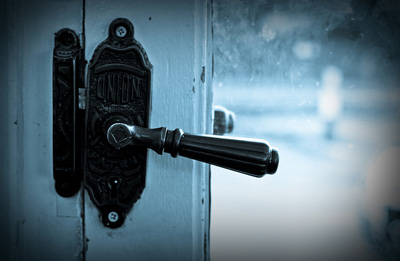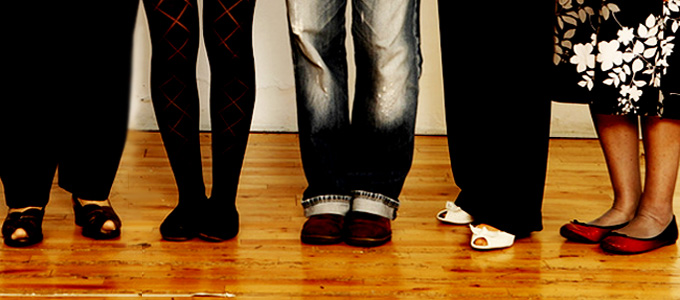by Jeni Grangaard
“You know what we love about you, pastor?” says one of my faithful 80-year-olds. “You share who you are, for better and for worse. It helps us tell our stories, whether they are good or bad.” She said this in reference to my public confession of being pulled over for speeding on my way to church. After I forgave the sins of my congregation, I asked them to turn and forgive me (a practice we might want to pick up more regularly).
It’s no easy task, being a human being, and it’s high time we are honest about it. We have sought the American dream, we have pursued happiness, and we have somehow come up short. Don’t get me wrong, I can be happy, and I love being happy, but my happiness doesn’t conform to that which is sold on advertisements and television shows.
My happiness has a few more wrinkles and a lot more twists and turns. But it is mine and it is real.
I’m guessing the same might be true for you.
We all carry different roadmaps for happiness, with cardinal bearings of hope, love, joy, and peace. These maps crease at major points along the way: a wedding, a birth announcement, a new job, a new home, a diagnosis, a divorce, a healing, a retirement, an adventure, a death. These creases could be our own or of others whom we have known.
I have two recent perpendicular creases. My husband and I, after many anguished months, found out we will welcome our first child in August. The week we saw our baby’s first heartbeat we received news that my sister had been diagnosed with a rare cancer. Talk about an emotional roller-coaster.
While the joy of the baby was still a secret, I could not contain the heartbreak of the cancer. I found out 10 minutes before our church’s Wednesday night worship service; I couldn’t get past the sermon blessing before tears broke from my eyes and watered my face. I explained what I had just learned and while I was sure I made everyone uncomfortable, I was actually met with faces who have heard similar news. A sister, an uncle, a husband, a survivor—many have felt the cold hard reality of cancer.
In the passing of the peace, instead of handshakes, my congregation hugged me, one by one. Instead of sermon notes, I received notes of prayer and support from my 7th- and 8th- graders. In the weeks that followed, I was given handmade Valentines and notes of support. I was embarrassed, vulnerable, and yet, I was surrounded by others. What is it about being particularly human that leads us to other particular humans?
Doors Unlocked and Opened
 There’s a band I love called, Death Cab for Cutie. They sing this song called “Doors Unlocked and Opened,” encouraging us to live a life founded on openness. Rather than living closed off and locked down, we might live in another way: openly and honestly.
There’s a band I love called, Death Cab for Cutie. They sing this song called “Doors Unlocked and Opened,” encouraging us to live a life founded on openness. Rather than living closed off and locked down, we might live in another way: openly and honestly.
Martin Luther would say it differently, calling us to break out of that which causes us to live curved in on ourselves, locked in on our fears and faults, stuck on our sin. Luther is famous for writing the words “sin boldly,” but less famous is the actual line: “let your sins be strong, but let your faith in Jesus Christ be stronger.” Luther begs us to be honest about who we are, which leads us to deeper faith and trust in Christ.
Ernest Hemingway wrote in A Farewell to Arms that “The world breaks everyone and afterward many are strong in the broken places.” Our broken places can become places of great strength and connection, not only for ourselves, but for others.
Frederick Buechner, in the introduction to his autobiography Telling Secrets, suggests that we must tell the secrets of who we are because “otherwise we run the risk of losing track of who we truly and fully are and little by little come to accept instead the highly edited version which we put forth in hope that the world will find it more acceptable than the real thing.” We must venture to be honest so that we do not become something we are not.
Two truths and a lie
Brené Brown, author of Daring Greatly and The Gifts of Imperfection tells us two truths: 1) we are wired to connect with others, and 2) we are wired to struggle. Yet the lie we tell ourselves is that in order to have the former, we have to deny the latter; in order to connect, we must hide who we are and how we struggle. We fear that if we were vulnerable showing who we really are, no one would want to connect with us.
We fear being honest about our struggles, thinking that it will diminish our connection with other people. In truth, it is the opposite. Brown found that those who are able to share their struggles with others are able to connect in a deeper way. She calls such people “the whole-hearted,” a term rooted in courage (the word heart comes from the Latin coeur).
Brown researched people around love, belonging, and connection. She found that when asked about love, they talked about heartache; when asked about belonging, they talked about the excruciating experience of being excluded; when asked about connection, they talked about disconnection. Our experiences, perfect and imperfect, positive and negative, good and bad, for better and for worse, are bound together. Love, belonging, and connection do not exist in a vacuum, separate from life’s chaos, but exist within the chaos, within the messiness, within the brokenness.
We show strength in relationship to weakness. We become stronger not by showing our strength, but be being honest about our weakness. It’s counterintuitive. It’s risky. It is subversive. It takes trust and courage. But, it is also good.
This kind of living isn’t easy. Yet over and over again, we find preachers, teachers, thinkers, writers, and singers who echo Brown’s chorus: lean into the discomfort, do not hide away into yourself, come out, be open, give one another the courage to do the same.
The Rev. Jeni Grangaard is grateful to be the pastor at Glyndon Lutheran Church (ELCA) in northwestern Minnesota. Travel and study have greatly impacted her life and faith, as has good music, great friends, and a husband who has been a lovely partner in this adventure called life.


Pastor Jeni, thank you for this much needed article. We were blessed by our congregation when my husband’s sister and brother died within a month of each other. It felt good to let them minister to us. Congratulations on the baby!
Thank you for this, Jeni. I think one of the reasons we connected so well in Nairobi was that all four of us could just be ourselves without any problem. I’m so sorry about your sister, and I hope there is better news ahead. We are excited about your baby and hope to see all of you in the future. You both remain some of our favorite people! God bless you.
Thank you for reminding me once again how my broken-ness, my many fears, and my desire to always do better are all vulnerabilities that can help me connect with others. I have always had a desire to “fit in” but I never have been able to do so for a multitude of reasons. Yet, my life is rich with love, family, and friends and so much of what I have has come through the broken places. I know I will continue to struggle with the desire to mask my pain, to present a positive and happy face; I simply trust The Lord will keep sending this precious message through as many channels as he sees fit! Thank you.
Great article….yes with Faith our personal stories in the roller coaster of life become who we are and oh so manageable in a community of believers.
Thank you for this article that has given me the courage to be who I am without being afraid of how people will see me. Sorry to hear about your sister. Hope for the best. And you sound like you will be a wonderful mother. Congrats and God Bless. Ila
Hi, Jeni – thanks for the beautiful way you’ve braided these thoughts about open, vulnerable living together. Blessing and brokenness intertwine, and joy and sorrow mingle. Thank you for relating to your congregation in a way that shares your life with them and for taking time and care to write about your pastoral work, making it available to others beyond your congregation. Gifts, all!
Eileen